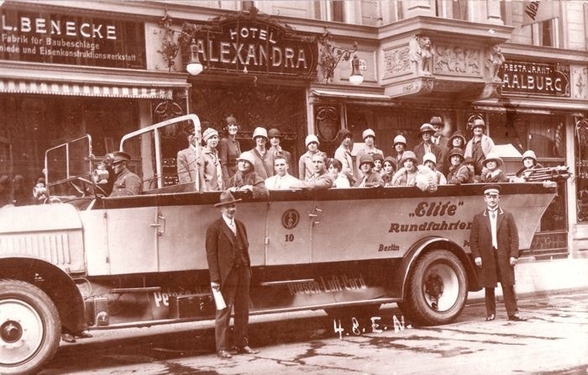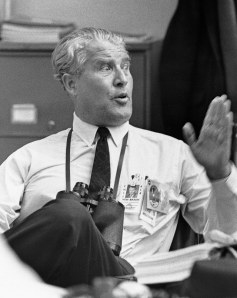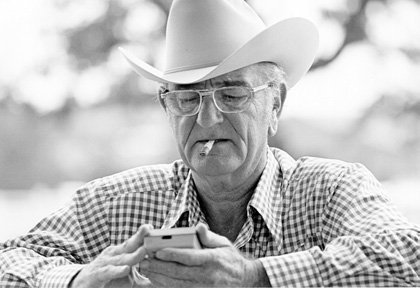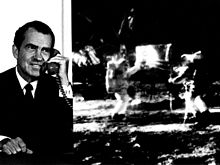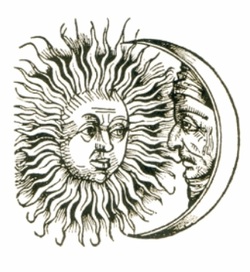
For a long time I seemed stymied by the problem of how to start the book. There seemed so many possibilities but which one would be the right one?
Then, one night, I had a dream. Incredible as it may sound, I dreamed the opening for the book. And if that were not quirky enough, my dream was about a dream. It was a vivid, detailed, long dream within a dream and, upon waking from it, I knew I must write it down in longhand right away. I don’t think I even returned to bed for fear that, when I woke for good, my notes would make no sense or my enthusiasm for the idea would have faded.
But the idea was solid. At least I thought so. And within a few days I had fleshed it out into the first chapter of Lunatics which began with:
It was Berlin but it wasn’t Berlin, as it was before the War, its wide streets lined with lanterns and large leafy trees and Wernher was bounding down the sidewalks like a giant, taking impossibly large strides, counting the seconds between footfalls, rising into the air to the level of rooftops and in a great but delicious rush to get somewhere wonderful. But where?
With trepidation, I let the members of my reading group have a look at this first chapter and, for the most part, their comments were favourable. I also had another writer friend, Kristene Perron have a look at it, and she—in the middle of writing her own novel--was a little more brutal in her assessment. The whole dream thing didn’t work for her. In fact, she called it a cliché. She wasn’t really interested in the story until von Braun actually woke up.
Ouch.
So I began to have second thoughts.
But it wasn’t easy to let go. After all, the dream was a “gift”, right? How often do you dream a chapter full-blown? Still, if it doesn’t work... If it doesn’t engage the readers almost immediately... And maybe I could use it later in the novel anyway?
So back to the drawing board, I go.
In a couple of days, it finally hits me that readers might really benefit from a proper back story. After all, how does Wernher von Braun get to be an astronaut and fly to the moon? It’s not exactly obvious.
I really LIKED the idea of dramatically starting the story right on the moon, right in the middle of the mission, but maybe that’s not really where the story begins.
And to be frank, that has always seemed to be a problem for me, knowing where my story begins.
Anyway, rather than counting on a dream to guide me, this time I did some additional research on President Lyndon Johnson. I also looked back through my notes and was surprised to find that LBJ and von Braun did indeed know each other, had met face-to-face several times, and it began to occur to me that a meeting between these two bigger-than-life characters might make an excellent backdrop to setting up the story.
This time, I decided to start the story seven years earlier, at LBJ’s Ranch in Stonewall, Texas, where the President has just invited von Braun down for a barbecue ostensibly, but the most important grilling that was to take place would be LBJ trying to find out just where NASA stood in its program to land men on the moon.
Now the book would start with the President addressing von Braun:
Lyndon Johnson, in a Texas State University apron and wearing his signature Stetson, spoke from behind the shield of his massive black and silver barbecue, “So, Wernher, got any news for me that’s good?
This time, I think it works. But I’ve been wrong before!
Please read it for yourself and tell me what you think.
I’ll have more to say about LBJ and the moon in my next posting.
LUNATIC WRITER, signing off.
Here is Chapter One of Lunatics:
LBJ Ranch, Stonewell, Texas
Wrapped in a Texas State University apron and wearing his signature Stetson, Lyndon Johnson spoke from behind his massive black and silver barbecue, “So, Wernher, got any news for me that’s good?”
“Oh yes!”
Wernher von Braun’s first impression of Texas had been forgettable. Of all places, they had sent him to Fort Bliss. There, for the first few years, Wernher and his German colleagues had to work in a perpetual cloud of stifling dust. Thank God for the Korean War; otherwise he’d be in that wasteland still.
“Mr. President, I am happy to report that Apollo IV—our first all-up launch of the Saturn booster—was a complete success. Well, I’m sure you have been briefed.”
LBJ pointed a large fork in the direction of the rocket scientist. “Mr. Von Braun...” He pronounced it, as did most Americans, ‘Von Brawn’. “I can be briefed till the cows come home. What I need is on-the-ground info. Straight from the horse’s mouth.”
Wernher could tell the president was wondering if he understood the expression. “Mr. President,” Wernher replied, grinning, “it is the horse’s belief that, after Apollo IV, we are back on schedule.”
“To land men on the moon?”
“Yes, Mr. President.”
“Perfect, Mr. President.” In truth, Wernher still could not understand the American passion for chilling their drinks.
LBJ flipped some burgers and sausages, pausing, like a Bronze age warrior to watch the steam and smoke rise skyward. “So everything’s back on track? Even after the fire?”
Wernher sat at the edge of his lawn chair and squirmed. The fire had been the low point in NASA’s race to the moon. Three astronauts needlessly killed while doing a routine ground test. “Well, sir, I am not directly involved in the inquiry but I am made to understand from Frank Borman, whose judgement I trust in these matters, that no effort is being spared to completely redesign the command module. There will be no more fires, Mr. President. Of this, I am certain.”
“Good.” Again the President flipped the searing blobs of meat, this time having to wave away a sudden gush of smoke. “So Professor...” LBJ grinned as he spoke, as if he knew that this honorific had been assigned to von Braun by Adolf Hitler himself, “what exactly does ‘on schedule’ mean to you rocket boys? Are we gonna get to the moon before the decade’s out or not?”
“I believe we will, Mr. President.”
“By ’68?”
1968? 1969 would be a stretch. Wernher tried but couldn’t completely eliminate the stammer in his voice. “By next year, Mr. President? Even if everything goes perfectly—”
“Because,” the President interjected, “it sure as hell would be convenient if we could get this all wrapped up before the next election.”
Wernher nodded. “I understand.”
LBJ, in an impressive rendezvous and docking manoeuvre, transferred the meat from grill to plate, closed the lid on the barbecue, then, once again, glared at the rocket scientist. He was giving him the “treatment” as some liked to call it. “Well what about ’69? Can we land men on the moon by then?”
Before the decade is out. President Kennedy’s words rang in von Braun’s ears like a nightmarish carillon. “Yes, Mr. President, by 1969 we can do it. I am sure of it.” In fact, he wasn’t sure at all.
LBJ brought the meat platter over, smiling widely, sitting on the lawn chair beside the rocket scientist and suddenly slapping him on the back. “Just what I was hoping to hear!”
Both men stared out across the swimming pool and at the silhouetted grove of cottonwoods beyond. It was like the Goldener Oktober of his youth Wernher thought, or Indian Summer, as he had learned to call it here. The sweetness of last days, the lingering hope that this year maybe, the leaves need not fall at all. The sky was abuzz with insects of all kinds, a chaos of snowflakes darting about in an orange sky. For a moment Wernher had forgotten where he was.
LBJ popped open another beer. “Mind you, ’68 would have been better. Now I’ll have to stand for re-election.” He leaned over and clapped von Braun on the knee, grinning. “Can’t have that bastard Nixon making the first phone call to the moon, can I?”
